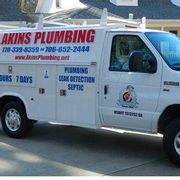
If you move into a new home that has a septic tank, you might wonder what it does, how it works, and how to avoid damage that could interfere with your plumbing. Here’s a closer look at septic systems and how to keep them in great shape.
Understanding Septic System Function
How Do Septic Systems Work?
Anytime you use plumbing fixtures or water-using appliances in your home, the wastewater needs to go somewhere. While people who live in big cities may have access to a common sewer system, folks who live in more rural or suburban spaces may need to rely on septic tanks to manage their wastewater.
Septic systems consist of a large fiberglass or cement tank with pipes leading into it from your home and out of it leading to a leach field, sometimes called a drain field.
 Your septic system works by acting as a place for wastewater to go. As solids enter the tank, they sink to the bottom, while grease and fats float to the top. Wastewater that is safe to exit the tank will move on to the leach field, where it is slowly and naturally filtered by rocks and gravel.
Your septic system works by acting as a place for wastewater to go. As solids enter the tank, they sink to the bottom, while grease and fats float to the top. Wastewater that is safe to exit the tank will move on to the leach field, where it is slowly and naturally filtered by rocks and gravel.
How Can You Maintain Your Septic System?
Over time, your septic system will fill up with solids, leading to the need for pumping. On average, most septic tanks need to be pumped at least once every three to five years. Tanks should also be inspected by professionals routinely to look for pipe damage, leaks, or issues with the size. If homes experience growth due to add-ons or family members moving in, the septic system may need to be upgraded.
Whether you‘re new to septic tanks ore experiencing problems with your plumbing, working with the team at Akins Plumbing & Septic can help. With more than 30 years of experience and a focus on customer service, this trusted Hoschton, GA, team can help you 24 hours a day, seven days a week. Request service online or give them a call at (770) 339-8359 to ask about your system.
About the Business
Have a question? Ask the experts!
Send your question

